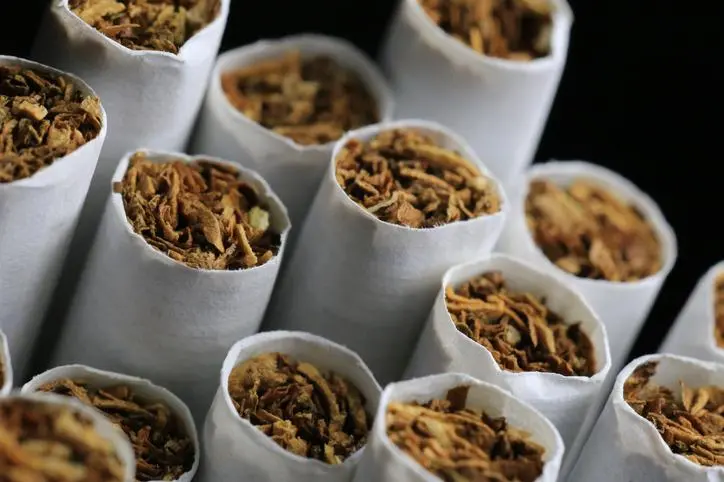PHOTO
The Gulf Cooperation Council's customs union needs to harmonise any increases in duty on tobacco if it wants to combat the threat of illicit trade, a senior figure in one of the world's biggest tobacco companies has said.
Speaking at The Economist's Global Illicit Trade summit in Abu Dhabi on Tuesday, Brendan Lemoult, vice-president of global compliance investigations at JTI, said experience had demonstrated to it that in other parts of the world, uneven tax policies had led to a spike in illicit tobacco sales.
"In New York City, the illicit trade is about 58-60 percent. So you've got really a series of bad tax policies that have led to this. It didn't happen overnight," he argued.
"You have a similar situation in Malaysia - over 50 percent (of cigarette sales) of illicit trade."
Both the United Arab Emirates and Saudi Arabia doubled the price of tobacco late last year following the introduction of new excise taxes. Energy drinks and fizzy drinks (other than carbonated water) also had taxes hiked.
Lemoult said that within customs unions, differences in tax policies can lead to a rise in illicit sales as smugglers bring tobacco and other products from one neighbouring state to another.
"We've seen in Russia right now a huge increase in illicit trade, because there's a huge disparity in the customs union. In Belarus taxes are less than half of what they are in Russia, so you see this huge inflow of illicit tobacco into Russia," Lemoult said.
Lemoult said that countries typically introduce higher taxes on tobacco and other unhealthy products with two policy goals in mind - raising revenue and reducing consumption. However, he said that sudden, dramatic spikes in taxes tend to achieve neither as smokers are often tempted to switch to illicit suppliers.
Abdelhak Senhadji, deputy director of fiscal affairs at the International Monetary Fund, agreed that international experience suggested that sharp increases in taxes are not necessarily beneficial.
"It may be optimal to do so if you just want to reduce consumption but the problem is it may come with illicit trade," he said.
Lemoult argued that once criminal entrepreneurs make inroads into a market, they can be hard to shift.
"Because what they'll do is start to trade other things. You'll see them get into drugs, you'll see them get into weapons, you'll see them get into human trafficking," he argued.
On Monday, another tobacco giant, Philip Morris International, issued a press release citing data from market research company MSIntelligence which argued that in Saudi Arabia the incidence of non-domestic cigarette packs in the kingdom increased to 14.1 percent in the second quarter of 2018, almost doubling from the 7.2 percent rate found in the fourth quarter of 2017. The excise tax was introduced in Saudi Arabia in June last year.
Tamer Shabana, director of illicit trade prevention at Philip Morris Middle East, said in the press release that “GCC governments are facing significant challenges as they suffer from a consumer population that turns to underground methods of obtaining cheaper products – in effect buying illicit goods”.
He also called for a harmonisation of excise tax policies throughout the GCC via a minimum excise tax.
(Reporting by Michael Fahy; Editing by Shane McGinley)
© ZAWYA 2018





















